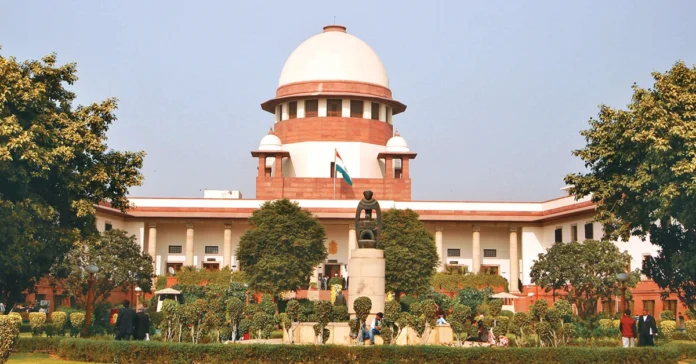The Supreme Court has turned its gaze upon a contentious petition filed by the West Bengal Migrant Workers Welfare Board, which alleges arbitrary detention and deportation of Bengali-speaking individuals under the pretext of identifying them as Bangladeshi nationals. The plea underscores the plight of migrant workers, many of whom, it contends, have been deprived of liberty without proper verification of their citizenship status.
A Bench comprising Justices Surya Kant, Joymalya Bagchi, and Vipul M. Pancholi pressed the Union government to clarify whether linguistic identity—specifically speaking Bengali—was being treated as prima facie evidence of foreign origin. The Court voiced unease at reports that individuals, including a pregnant woman, were allegedly deported merely because they conversed in Bengali, without judicial determination of their nationality. Counsel for the petitioners, advocate Prashant Bhushan, argued that such actions offend both constitutional guarantees and international law, since deportation without concurrence of the receiving nation breaches established norms.
The Union of India, represented by Solicitor General Tushar Mehta, dismissed the petition as belated and politically motivated. He emphasised that the menace of illegal migration from Bangladesh is neither sporadic nor innocuous but a systematic infiltration that threatens national security and drains public resources. The Solicitor General contended that vested organisations often mask such infiltration under the rhetoric of human rights, while ignoring its implications for sovereignty.
Even so, the Bench insisted upon the primacy of due process, reminding the State that no person may be stripped of liberty or deported without the threshold determination of citizenship. The judges underlined that the Constitution demands fairness and equality, and linguistic or cultural affinities cannot alone be the basis for treating a citizen as an alien. They observed that the porous nature of borders in the region, coupled with shared heritage and language, requires a more nuanced approach than blanket suspicion.
The Court directed that habeas corpus petitions pending before the concerned High Court, particularly the one involving the pregnant woman referenced in arguments, be adjudicated expeditiously. It scheduled the matter for further hearing on September 11, 2025, thereby keeping alive a debate that straddles the fine line between safeguarding national security and preserving the fundamental rights of individuals who may be citizens unjustly branded as foreigners.
The litigation thus assumes constitutional significance: it calls upon the judiciary to balance sovereignty and security on one hand, with dignity, equality, and liberty on the other. At its core lies the question of whether language and cultural identity can serve as the yardstick for citizenship, or whether the State must devise fair, transparent, and judicially reviewable processes before curtailing freedoms in the name of migration control.


